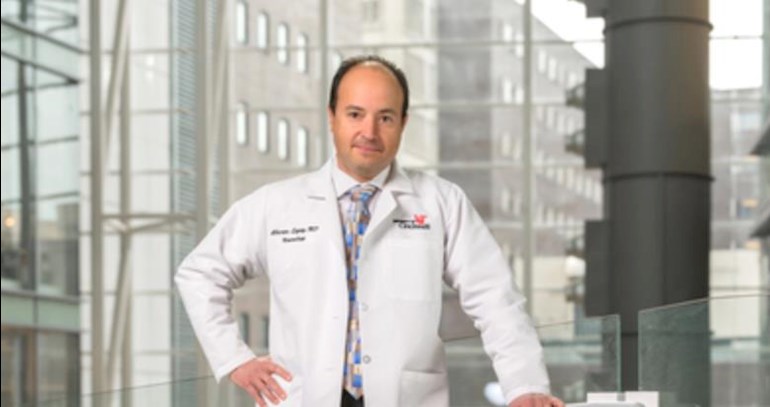I am delighted to announce our next zoom session that will be taking place at 7.30 pm London time on Monday, the 30th of May.
We will have the pleasure of listening to Dr. Alberto Espay who will talk to us about “Matching therapies to people with the biology to benefit from them: the missing ingredient for successful disease modification in Parkinson’s”.
Dr. Alberto Espay is Professor and Chair of the Gardner Center for Parkinson’s disease at the University of Cincinnati. He has published over 300 research articles and 8 books on neurodegenerative diseases.
The models used to define certain neurodegenerative conditions (such as "Parkinson’s") have largely remained the same for over a century.
The presence of certain pathological markers or the loss of specific populations of cells in the brain have been used to explain the clinical features patients experience. And technological advances have been used to validate rather than question these models.
As a result, each neurodegenerative disorder has become defined as complex, and the wide range of variability between cases has been difficult to explain.
We have come to know a lot about our model of the disease we call Parkinson’s, but next to nothing about each individual affected. And this is important when it comes to developing novel treatments.
Promising new therapies have been tested in large clinical trials, but these studies have involved a broad mix of people with Parkinson's, each bringing their own version of "Parkinson's". Many of these experiments have been started without a clear bioassay to determine the suitability of each participant at the start of the study, which has often led to much difficulty in interpreting the final results.
If we can change this latter aspect, and start matching these therapies to people with the appropriate biology to benefit from them, then and only then can we achieve a first success in disease modification.
Please use the Eventbrite link below to register for this event:
eventbrite.co.uk/e/dr-espay...
------------------------------------------
Dr. Alberto Espay is Professor and Endowed Chair of the James J. and Joan A. Gardner Center for Parkinson’s disease at the University of Cincinnati. He has published over 300 research articles and 8 books, including Common Movement Disorders Pitfalls, which received the Highly Commended BMA Medical Book Award in 2013 and Brain Fables, the Hidden History of Neurodegenerative Diseases and a Blueprint to Conquer them, coauthored with Parkinson patient and advocate Benjamin Stecher, selected by the Association of American Publishers for the PROSE Award honoring the best scholarly work in Neuroscience published in 2020.
He has served as Chair of the Movement Disorders Section of the American Academy of Neurology, Associate Editor of the Movement Disorders journal, and in the Executive Committee of the Parkinson Study Group (PSG). He currently serves the International Parkinson and Movement Disorders Society (MDS) as Chair of the Task Force on Technology and as President-Elect of its Pan-American Section.
With colleagues at the University of Cincinnati, he recently launched the first biomarker study of aging (CCBPstudy.com), designed to match people with neurodegenerative disorders to available therapies from which they are most biologically suitable to benefit, regardless of their clinical diagnoses.
